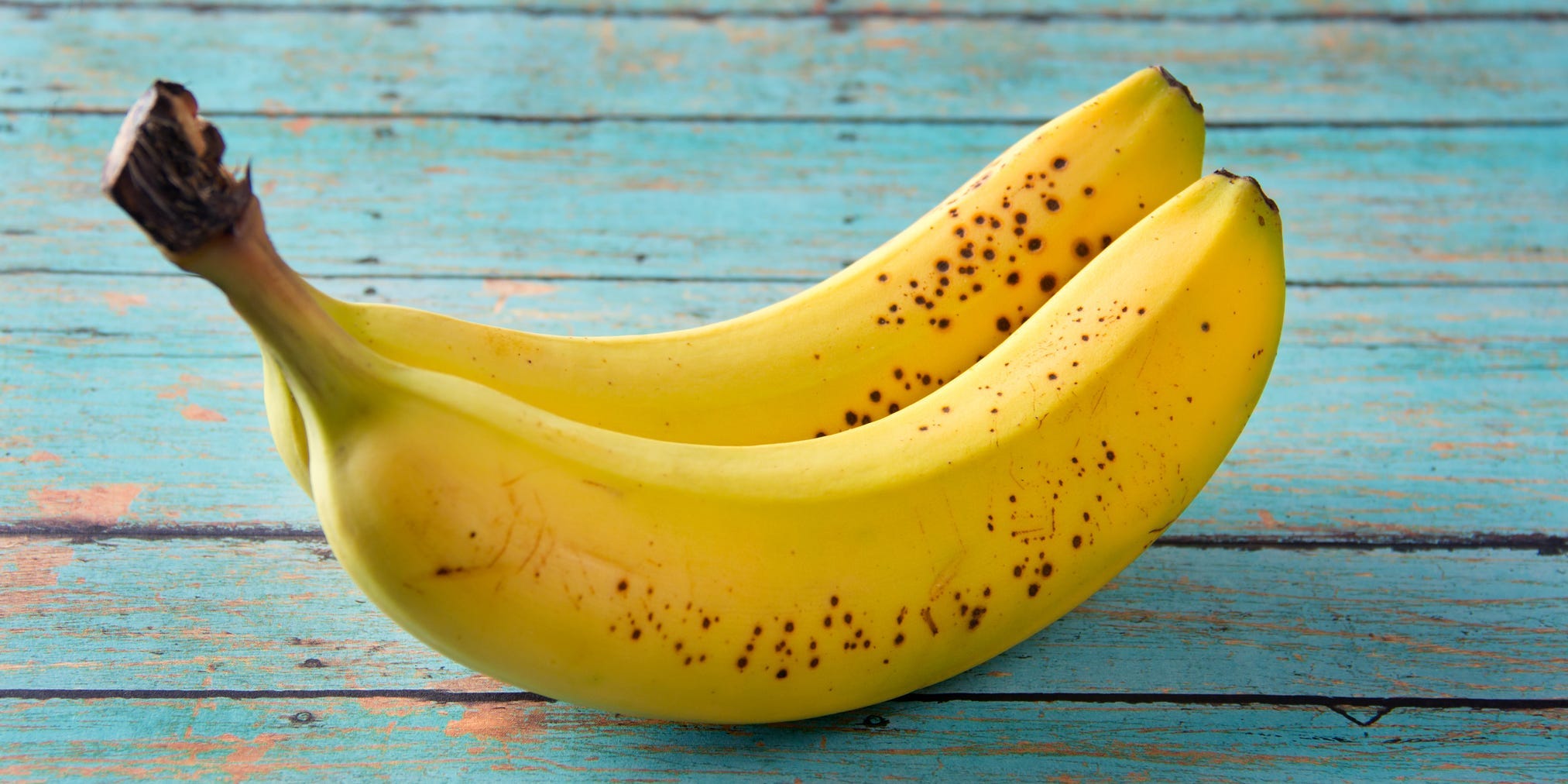
- Bananas produce ethylene gas as they ripen, which promotes further ripening.
- Group bananas together on a kitchen countertop to increase ethylene and prompt quicker ripening.
- For the fastest results, store the bananas in a brown paper bag.
- Visit Insider's Home & Kitchen Reference library for more stories.
Bananas are one of nature's most versatile fruits, but their ripening process — which causes them to transition from a light green to the sunshine yellow hue they're known for — means it's important to know how to store them for the best results. Understanding the science of ripening is key to getting the freshest results, says William Goldfield, director of corporate communications for Dole Food Company.
Understanding the ripening process

Banans produce ethylene gas, an invisible gas that triggers the ripening process, says Goldfield. The best indicator of banana ripeness is the color of the peel. "The yellower the peel, the riper the fruit. Once brown sugar spots start to appear, the bananas are reaching their peak ripeness," says Goldfield.
Dole recognizes seven stages of color ripeness, with the first being all green to the last stage, yellow flecked with brown. Greener hues indicate a starchier fruit, with less residual sugar, which is better for cooking in savory applications, while a yellower or spotty banana has more converted sugar and is better for a sweeter usage, such as desserts.
According to Goldfield, other indicators of ripeness include the ease of peeling, softness of the fruit, and the aroma when it's cut into. Less ripe fruit is greener, firmer, and more difficult to peel, and will smell like a cucumber. A ripe banana, on the other hand, will still be firm to touch but will have a bright yellow color and the sweet, fresh smell typical of bananas.
3 methods to ripen bananas for eating

Apart from ethylene, temperature is the single largest factor in ripening, says Goldfield. To speed up ripening, maintain a humid atmosphere at 60 to 65 degrees Fahrenheit. If you have green bananas at home, and prefer a more yellow fruit, you can accelerate the ripening process with a couple of methods backed by plant science.
1. Bunch them together
Increased amounts of ethylene gas from multiple fruits will speed up ripening. Keep a bunch of bananas together directly on the kitchen counter or place them in a fruit bowl so their combined ethylene gas will help the fruits ripen. Check bananas daily until they reach the degree of ripeness that you prefer.
2. Place them in a brown paper bag
According to Goldfield, this is the most effective method for triggering ripening at home. Place bananas in a closed paper bag overnight. The closed bag will trigger the banana to emit ethylene gas, while retaining heat and humidity conditions similar to a ripening room, says Goldfield.
3. Store them with other ethylene-producing foods
If you really need ripe bananas in a hurry, you can try adding a cut apple to the brown paper bag, says Goldfield.
"Some theorize that cutting an apple and placing it in a bag with bananas will increase ripening, as apples also emit ethylene gas," he says. Other ethylene-producing fruit include avocados, mangoes, and pears. Just be careful not to place too much heat stress on bananas, as this will result in soft pulp and mushy fruit — both of which are undesirable.
A trick for softening bananas for baking
If you're looking to soften bananas quickly for banana bread or other recipes that call for overripe bananas, putting them in the oven will work in a pinch. Simply preheat your oven to 400 degrees Fahrenheit, place your bananas on a baking sheet, and bake them for 5-25 minutes, until they're browned.
Just don't count on the oven method for any thing other than baking. The heat will result in soft, mushy bananas, so ripening bananas this way for eating them plain is not advised, says Goldfield.
How to keep a banana ripe for longer
Keep bananas fresh for longer by freezing them. To freeze a banana, peel it when it is yellow, wrap in plastic wrap, and place in the freezer. Goldfield notes frozen bananas are ideal as a smoothie ingredient, But they can also be used in banana bread and other recipes. Bananas can be frozen for eight to twelve months.
Insider's takeaway
Bananas ripen naturally by emitting ethylene gas, which is a byproduct of the natural plant hormone. Produce companies typically carefully control the climate where bananas ripen in warehouse ripening rooms to speed up (or slow down) the process.
At home, you can use a brown paper bag to create a similar climate-controlled atmosphere or set a few bananas close together so their combined ethylene gas will accelerate the ripening process.
